How top Fast Food (QSR) Franchise Business To Look Out for as a newbie
How to Wow QSR Diners at Every Step of the Customer Lifecycle

Restaurants, fast-casual dining establishments and quick service restaurants (QSRs) are rich with opportunities to attract, engage and delight their customers. But to truly make the most of these opportunities, QSRs and other dining establishments should have a plan for every customer, at every step of their journey.
What is a QSR food franchise?
QSR means Quick service restaurants. These types of businesses are generally into fast food. These do not offer a fine dine experience. They are for services to customers who need a quick bite and are on the move. These franchises are of low cost. They are very economical and can be operated with less number of employees. Cloud kitchens also offer similar facilities.

The main objective is to reduce the space cost which has a huge part in the capital. Avoiding that, they are able to make more profits with low investment.
Even though the QSR franchise might seem easy, remember that franchising is an art and science. Many see a quick growth in the initial years and then drop down drastically.
To ensure this does not happen, take help from a franchise expert who can structure your QSR business. This will help you not only on making your brand better, but also ensure problems that can arise in the future can be avoided by making the best franchise operations, franchise agreements etc.
What is the first stage in starting a new business in QSR?

I want to start an online QSR (Quick Service Restaurant) in Mumbai. What are the licenses that one needs to acquire before starting up?

To start your own QSR get ready by…
Choosing the Location of the Quick Service Restaurant
Licenses Required for opening a Quick Service Restaurant
Staff Needed for running a Quick Service Restaurant
Kitchen Equipment and Raw Material needed in a QSR
Marketing of the Quick Service Restaurant
POS and Billing Software needed for the QSR
Staff Uniform for the QSR Employees
Counter and Branding the face of the QSR
FSSAI
Fire and Safety
Labor license
RTO permit for delivery vans

How QSR Franchises Can Stay Ahead of the Curve
Keep Them Coming Back For More
Once you’ve made your customers feel welcome and recognized, keep the good vibes going with thoughtful, personalized content. Say your customer just drove by your restaurant but didn’t stop in. With geo-fencing, you can deliver a message and a generous offer right to their phone, inviting them back the next time they’re in the neighborhood.Loyalty programs are also a great way to retain your customers, with incentives, rewards, and exclusive access to your brand that doubles as an amazing resource of customer data for your business.

Futurology is the study of future trends based on current ones. It’s an important tool for businesses to use in order to stay ahead of the competition and keep their products and services relevant. The quick service restaurant (QSR) industry is no different. With new technologies emerging and changing the landscape of how restaurants do business, it’s more important than ever for QSR franchises to stay ahead of the curve. Here are some futurological trends that QSR businesses should be aware of.

Omnipresent Marketing
Omnipresent marketing is an emerging trend in which businesses are available on every possible channel 24/7. This means having a strong online presence, being active on social media, and providing excellent customer service at all hours of the day. For QSR franchises, this could mean setting up an online ordering system, being responsive to customer inquiries on social media, and having a staff member available to take orders by phone outside of normal business hours.

Menu Flexibility
Another way that QSR franchises can give customers what they want without compromising their business model is by offering menu flexibility. This could involve offering vegetarian or vegan options, gluten-free options, or customizations like add-ons and substitutions. By giving customers the ability to tailor their order to their specific dietary needs or preferences, QSR franchises can show that they’re willing to go the extra mile to provide an excellent customer experience.

People First Focus
The best QSR franchises focus on people first, with motivated employees and a welcoming atmosphere. This creates a positive feedback loop in which happy employees lead to happy customers, which leads to more business and more motivated employees. When QSR businesses focus on their people first, they create a culture of excellence that sets them apart from their competitors and helps them thrive in an ever-changing industry.
The QSR industry is constantly changing, but by staying aware of futurological trends, QSR businesses can stay ahead of the curve. Some trends to be aware of include omnipresent marketing, menu flexibility, and a people first focus. By keeping these trends in mind, QSR businesses can ensure that they’re providing the best possible product and service to their customers.

Steps To Open A Quick Service Restaurant In India 1.Choose the location of the quick-service restaurant. 2.Get all the licenses required to make your QSR legal. 3. Get on board the required number of staff. 4. Arrange for the kitchen equipment and the raw materials needed. 5. Market your QSR well.
A List of KFC competitors
Tim Horton, Jack in Box, Starbucks and other international and local fast food brands.
Popeyes Louisiana Kitchen
While Popeyes has comparatively a smaller footprint, it is the leading competitor of KFC in the US and some other parts of the world.
Popeyes was founded in 1972, in New Orleans.
The company is owned by the Restaurant Brand International.
Its New Orleans styled menu features fried chicken, chicken tenders, fried shrimp, and other regional items.
The total number of Popeyes restaurants including the US and some other parts of the world is 3,451.
However, it is still a leading rival of KFC in the QSR chicken category.
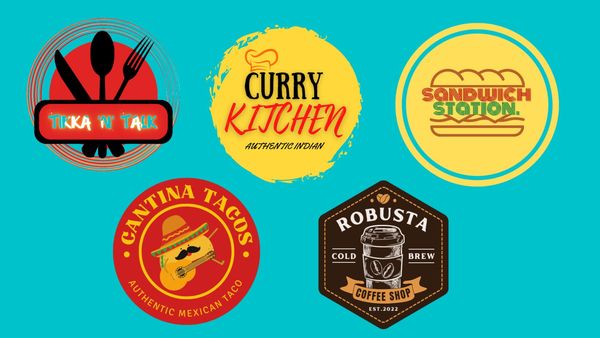
Chick Fil A:
Chick Fil A also has a comparatively smaller footprint than KFC.
However, it is a leading brand in the US market in the QSR chicken category and a primary rival of KFC.
Founded in 1946 by S Truett Cathy, the brand is known for its chicken sandwiches and other chicken products.
The business is still owned by the Cathy family.
Its net revenues in 2019 were $11.3 billion.
Chick Fil A operates in the US market mainly; it has 2,723 stores operational (2020) and the company has a significant footprint across the United States.
It is also one of the most popular brands in the QSR chicken category.
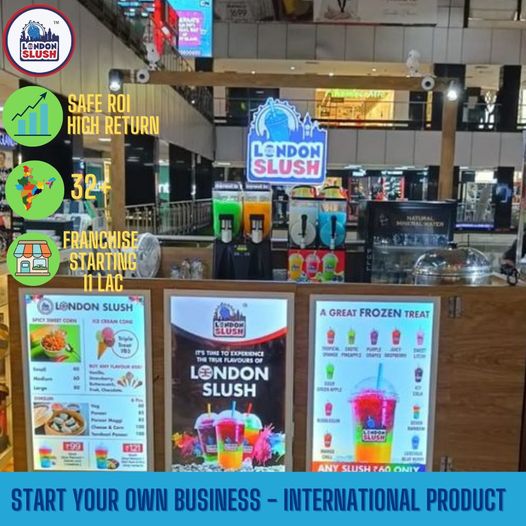
Chipotle:
Chipotle or Chipotle Mexican Grill is one of the leading American fast food chains, which apart from the US market, also serves the UK, Canada, Germany, and France.
It specializes in Tacos and mission burritos which are prepared before the customer.
However, chipotle has a significant presence across the United States and deals in a nice range of chicken items.
It mainly deals in fast casual Mexican recipes and remains one of the significant competitors of KFC.

McDonald’s:
McDonald’s is undoubtedly the most well known and largest fast food chain in the world based on the number of stores operational and total net annual sales.
Apart from its strong global presence, the company has acquired success through its focus on menu diversity and innovation.
McDonald’s has introduced a large and diverse menu which also includes a large variety of chicken items.
McDonald’s is among the strongest players in the fast food industry and one of the most significant rivals of KFC.
Like KFC, McDonald’s also operates a franchising business model and a very large part of its business is operated through franchisees. It is currently the highest valued brand in the QSR industry followed by Starbucks.

Burger King:
Burger King is among the leading brands in the fast food industry.
It is owned by restaurant business international, which also owns Popeyes and Tim Hortons.
Based on the number of restaurants operational, it was the second largest fast food hamburger restaurant chain in the world.
Burger King was founded in 1954 and since then it has expanded its international presence significantly.
Now, BK operates across 100 markets in the world.
At the end of 2020, there were 18,625 BK restaurants operational across the world.
Burger King’s menu features flame-grilled hamburgers, chicken and other specialty sandwiches, french fries, soft drinks and other food items.
It sells a nice range of chicken items and is among the leading rivals of KFC.

Wendy’s:
Wendy’s is also one of the leading names in the QSR industry.
The Company opened its first restaurant in Columbus, Ohio in 1969.
Now, it’s the second largest company in the QSR hamburger category in the US and the third largest in the world based on footfall.
As of January 2021, it had 6,828 stores operational in the US and 30 other markets across the globe.
It has divided its business into two main segments including the US and International.
Wendy’s has maintained a significant presence in the US market where it had 5,881 stores operational in January 2020.
Its business is also operated mainly by franchisees.
Wendy’s specializes in hamburger sandwiches and filet of chicken breast sandwiches, which are prepared to order with the customer’s choice of condiments.
Wendy’s menu also includes chicken nuggets, chili, french fries, baked potatoes, freshly prepared salads, soft drinks, Frosty desserts and kids’ meals.
The company offers a nice range of chicken products and therefore is a significant competitor of KFC.

Subway:
Subway is a privately owned QSR brand with a significant presence across more than 100 markets.
It was founded in 1965 and as of 2021, it had 37,540 stores operational worldwide.
It mainly sells submarine sandwiches (or subs), wraps, salads and beverages.
However, the leading market of Subway is the United States, where more than half of its stores are located.
Subway sells both chicken and vegetarian products and is among the leading players in the QSR industry.
It is owned by the Deluca family.

Domino’s:
Domino’s is also among the leading players in the QSR industry that serves a diverse choice of pizzas and other products in both chicken and veg categories.
Founded in 1960, Domino’s has grown into the world’ largest QSR pizza chain in the world.
It is among the leading players in the US QSR sector.
Domino’s enjoyed excellent growth during the pandemic.
It is also among the most popular brands in the QSR sector that sells in the US and 90 other markets.
However, the US business of Domino’s accounts for a significant part of its revenues compared to the international segment.

Pizza Hut:
Pizza Hut is also a leading player in the QSR sector in the pizza category, owned by Yum brands, which also owns KFC and Taco Bell.
At the end of 2020, Pizza Hut had 17,639 stores operational worldwide in 110 countries.
Operating in the delivery, carryout and casual dining segments around the world, Pizza Hut has established a strong global presence. It deals in a nice range of pizzas including veg and non veg items.
How do I make my career with one year of experience with QSR?
What are the key points to check before franchising a QSR business?
How does QSR business works in India?
The Indian Quick Service Restaurants (QSR) market, currently valued at Rs 8,500 crore, is expanding at a compounded annual growth rate (CAGR) of 25%. Within five years, India’s QSR sector is expected to triple to Rs 25,000 crore. In India, the QSR model works very best due to a number of factors including: –
Environment – access to capital for innovative and enterprising businesses has become easier than it was a few years ago,
– Demand – changing demographics, income growth, urbanisation, growth in organised retail, and demand for hygienic food.
Supply – the government has improved infrastructure and private investment in cold chain networks across the country, making access to quality raw materials a reality.
If you want to start a QSR chain in India, you need to keep two things in mind.

Locations: For any QSR to succeed location is very important. Some preferred locations for QSR are as follows: high traffic areas, workplace areas, educational areas, shopping complexes, and others.

Pricing: The prices of food matter a lot for QSRs. If the food is very high priced, it will not attract many customers. Cost management is very important for any food business.
These two are game-changers for any QSR business. It is because of these factors and the quality of food that led Chai Sutta Bar become a grand model of a successful QSR business in India. The brand started very humbly by opening one outlet in the city of Indore but now they have come up with more outlets and all of them are pretty successful. Their USP was their location and pricing of their best products.

Depends on the number of footfall in the mall . I’ve seen malls with footfall of over 10,000–20,000 people in a day and I’ve also seen malls with footfall of 400 people .
Talking about the food court ,assumed is maximum is 10% of the mall’s footfall you can get In your shakes and sandwich store.
Find the average footfall of the mall , let’s take 1000
Maximum you will be serving is 100 person per day
Multiple the number with average ticket size ,it again depends on brand to brand and you will get your expected daily sale.

How do QSR chains like Domino’s, Wow Momos, and McDonald’s able to maintain the same taste and quality of their products across all of their outlets?

Maintaining consistency in QSR across restaurants outlets is extremely important to maintain. It helps to build brand loyalty among customers.
The multiple outlets restaurants need to maintain the consistency in taste as well as service ,not only to retain customers but also replicate the success of original outlet.
To maintain consistency :
The QSR follow the following steps :
Menu Standardization :

Standardization of menu is essential across the outlets. All outlets serve the same tasting food across all their outlets. Even the Daily Specials are planned before hand so that a standard menu is maintained.
Central Menu Management : (CMM)
Central menu management allows to manage the central menu across all outlets. A change in the menu of the central POS is reflected instantly across all outlets, thus eliminating any discrepancy. Any change in menu from central menu management software ,all outlets can plan and control menu from remote locations as well.
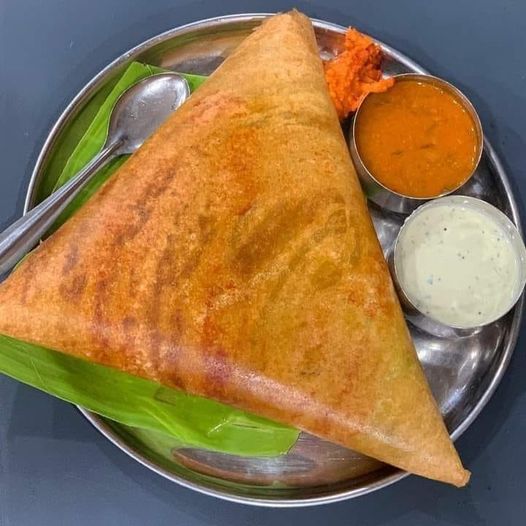
Standardization of Recipe :
All recipe and specials are created at restaurant headquarters or central outlet. The recipes specific exact details such as the size ,cut and weight of the vegetables meat, exact quantity of oil and salt to be used.Any modification is circulated across all the outlets.

Cost Control :
The inventory management and recipe management gives the amount of ingrediants used up in day.
Multi-store Management :
They keep a track of all the outlets stock consumption and requirement. If an outlet is running low on a certain item, the central management reminds to order more of it. Central supply of stock for all the outlets maintain consistency.
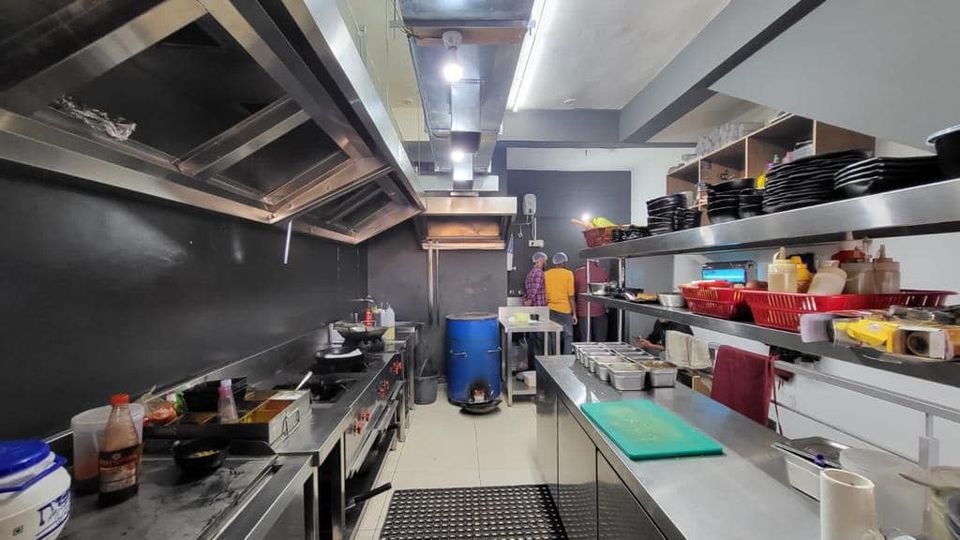
Central Kitchen Management :
From central kitchen semi prepared food is sent to outlets .90% of food is prepared at the central kitchen and is distributed to rest of the outlets.
This is how consistency is maintained in all the outlets.

Will Menu Changes Enable QSR’s to Take a Greater Slice of the QSR Pie?
Women were more receptive to the menu changes, as they were slightly more likely to indicate that they would eat at Pizza Hut more frequently. The expected growth among current diners is likely to come from city dwellers. There were no notable age differences, but those who eat there regularly and will go more often are more likely to have household income under $50K.
Unsurprisingly, this announcement did little to win over current customers. People who eat fast food at least once per week are more likely to answer “I already eat there regularly, and this will not change how often I go.” Notably, this menu change seems to have some influence among regular fast food diners who don’t regularly frequent Pizza Hut.

Top 10 Best Food chains in India
Starbucks
McDonald’s
Haldiram’s
Barbeque Nation
Subway
Barista Lavazza
Bikanervala
Café, Coffee Day
Pizza hut
Shiv Sagar
Domino’s Pizza
Sarvana Bhawan
KFC
Taco Bell
Consumers today are faced with a wide variety of restaurant and food choices every time they choose to dine out. From hundreds of restaurants options to snacking, smoothies, desserts and coffee, brands continue to innovate and find ways to tempt consumers’ taste buds. For some brands, that means developing fully integrated dual brand concepts with strong consumer appeal, new products and the opportunity for franchisees to optimize their revenue.

Rapid urbanization due to the increase in population and economic growth and the rise in disposable income of people have led to the penetration of eating out culture in the country. Per-capita monthly income in India is estimated to have increased by 6.8% to INR 11,254 in FY 2020 from INR 10,534 in FY 2019. Besides, an increasing number of fast-food franchises in untapped areas and expansion of tier II and tier III cities have led to the rise in the number of quick service restaurants
Burger King India Private Limited
Jubilant FoodWorks Limited
Burman Hospitality Private Limited
Coffee Day Global Limited
Devyani International Limited
Jumbo king Foods Private Limited
Sapphire Foods India Private Limited
Subway System India Private Limited
Tata Starbucks Private Limited
Westlife Development Limited (Hardcastle Restaurants Private Limited)

What is the business model of a quick-service restaurant?
Fast food is one thing, which has everyone’s heart tucked in one string. We all have same cravings as we see Quick Service Restaurant (QSR)’s posters or hoardings, which is in a way giving the boost to keep this business running.
The Takeaway or QSR format seems to be the most practical format, as the return on investment is high. You can charge the price of a casual dining menu, but not incur cost the same as you save up on the area, furniture, air-conditioning, crockery etc. However, you still need 100-150 orders to make it viable in the long run.
In order to begin a QSR service, one needs to remember that your food should be
Easy to make
Tasty to eat
Quick to serve
Ready to take away

Choosing the Right Location:
Location plays an important role for almost all businesses, let alone fast food restaurants. An ideal business location is the one that is densely populated and also enjoys the potential to get maximum footfalls of the targeted customers.
Getting Required Licenses
As is the case with everything, you need to get proper licenses before starting a fast food restaurant. You basically need to get 4 to 5 licenses: food license from FSSAI, VAT registration, permission from local Municipal Corporation, fire license and police eating house license.

Hire a well experienced staff
An unbranded fast food restaurant usually needs have 5 to 6 staff members, out of which 2 are supposed to have full time chefs. A branded restaurant, on other hand, can afford to have more staff members, since they have more capital and cash reserves at their hand.
Automation
In today’s day and age, where technology has pervaded every aspect of our life, QSRs can ill afford to overlook the importance of automation.
India’s Quick Service Restaurants (QSR) Market, 2015-2025: Analysis of Products, Types, Models, Sales Channels, Regions, Major Cities, and Companies
How does a Quick Service Restaurant operate?
Quick Service Restaurants are the chain models. Most of the restaurants are established where the footfall remains maximum, which is why you will find these places near the movie theatre or shopping malls. To reduce cooking time, the food items are prepared centrally in the kitchen. The last step of heating and assembling the food and another assortment, such as sauces and dips, will be done on location. It is the only way the restaurant serves the food in a faster way.
Why is the Quick Service Restaurant the future?
Until now, it may be pretty clear that QSR has come a long way and offers several benefits to the people. Undoubtedly, it will make the future bright because of the following factors.
Growth of the young population
India has a population with more than 50 per cent under 25 years and more than 65 per cent under 35 years. India’s average age in 2020 is 29 years, compared to China’s average age of 37 years and Japan’s average age of 48 years. Young adults (18–35 years) enjoy eating out and even consider fast food to be delectable, and they spend a significant amount of their income on it. People in this age range are your ideal customers for the QSR chain which makes the growth of this sector more significant. People expect their food to arrive quickly when they visit a restaurant, and this is how these QSRs can profit.
Increase in per capita income
The Indian economy is growing rapidly at a 9.8 per cent CAGR, which fuels the country’s consumption. It has increased the number of times when Indians have food outside, that is about six times a month. And this number will increase and go up, backed by higher disposable income, which will also increase internet penetration.
Service of the internet in cosmopolitan cities
Now, the internet service has become more accessible than it ever was. Along with that, the online ordering window is also enhanced with time. Now tier-II and tier-III cities will have the same comfort and privilege. The quick-service restaurant is expanding its business, and even third-party vendors have spread their base in India.

If a Fast Food (QSR) Franchise Owner Is Selling Half of His Business, What To Look Out For as a newbie businessman?
In short, the owner is looking to sell up to 50% of his business to me. It’s a nationally recognized Fast Food Franchise and he has had it for more than 10 years
Does the current owner receive a regular salary? What will be his salary in the future? What will be your salary in the future? Are the 2 comparable?
Look at the cash flow for the past 5 years. Is the cash flow trending up or down? Take 50% of the Cash Flow each year going backwards. How many years does it take for the Cash Flow to be greater than your Purchase Price? If less than 5, the deal passed that test. If greater than 7, I would say no deal. 5 or 6, need to look at it harder.
Back taxes, any govt dues, employee outstanding, debtors and creditors etc, any debts where business is collateral. Cash flow, expenses vs. INCOME,
Right of Refusal of the remaining shares?
Right of first refusal means if he decides to sell the other 50% some day you have the right to buy it. This is important, without this your risk being stuck with a lousy partner in the future.
Who decides what the ultimate cash flow is? What if he wants to take distributions but you want to reinvest to buy or open more stores?
If you are going to be operating the business you should get paid a management fee or salary prior to any distributions being contemplated.
Honest Advise from personal experience. Dont do 50%, do atleast 51-70%. 50-50% is never a good idea with even your brother.

Despite QSR’s increased focus on healthy menu options, there is a limited correlation between healthy offerings and loyalty. Chains in the top 20 specialize in everything from the indulgent, like burgers, tacos and fried chicken, to lighter fare options like sandwiches and salads.

QSRs with a breakfast offering tend to drive increased visit frequency. Our data shows that customers visit coffee shops more than any other type of restaurant. QSR food chains are taking notice and capitalizing on this trend by expanding the morning menu, allowing customers the opportunity to come in for an AM caffeine fix AND a bite to eat, all in a convenient one-stop shop
While some of the country’s biggest national brands have claimed the top spots, size is not necessarily an indicator of success and loyalty. Regional brands like Whataburger and The Coffee Bean and Tea Leaf made it into the top 10, beating out much larger national competitors.

So how does SWOT Analysis assess customer loyalty?
In order to determine who is winning when it comes to attracting repeat visitors,SWOT Analysis measured foot traffic by four key metrics:
Visit frequency: the average number of visits per diner within a year.
Market penetration: the percentage of all QSR diners who visited the chain within a year. Penetration was only measured for regions in which the chain exists, so a chain like Maiya’s, for example, was not impacted for its regionality.
Share of Wallet: the percentage of the consumer’s total QSR visits that a particular chain captures within a year.
Fanaticism threshold: the number of visits within a year required for a customer to be within the top 1% of customers who visit a particular chain, on a scale of 1 to 50.

The On-Demand Economy & Quick Casual / QSR Restaurants
We all love the convenience of grabbing a quick sandwich, salad, sushi, burrito or kimchi from our favorite restaurant or food truck at lunch time.
In today’s mobile, on-demand “Uber” World, our expectations of receiving exceptional service with the least amount of frustration keeps rising and rising.
Stats show that successful application of mobile-first solutions in the QSR space reap the following trifecta of business results: Increased spend, Increased frequency of visits, Increased word-of-mouth.
Create a beautiful platform that combines an elegant app, ordering and payment process, and backend integration to the restaurant, delivering a unified customer experience that made me smile.
No waiting, no wrong orders, no delays, no standing in line.
Top most festival Products FMCG consumers search today
World Wide Festive Trends Decoded What Indian festive consumers seek...
Read MoreHow right selection of FMCG Salesmen improves brand market share
How can FMCG Companies improve salesman’s technique in order to...
Read MoreHow most searched Fmcg sales and marketing words help newbie salesman
Why undestand FMCG sales management? Sales management is the process...
Read MoreHow Successful FMCG Salesman Starts his Day, a guide
How does one become a good sales executive in the...
Read More



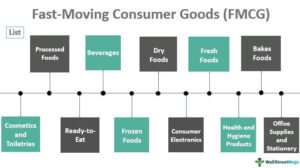




Pingback: Why do FMCG brands use Jingles, Mottos, Slogans, Taglines?
Pingback: How different are FMCG Company names and Product Brands?